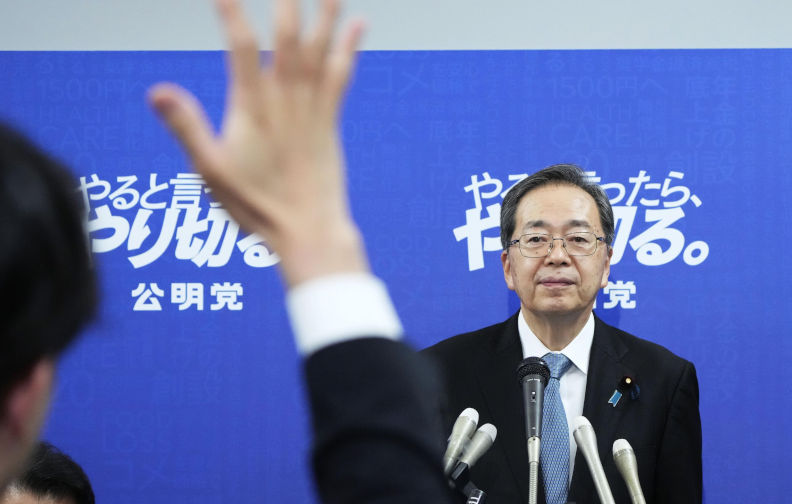Japan's LDP coalition splits – what does this mean?
October 14, 2025
So, finally there is some room for principles in Japanese politics after all! Not much, but when it comes to the point of white having to embrace black something has to give.
When the Buddhist Komei party, nearly three decades ago, jettisoned its pacifistic, pro-China principles for an electoral alliance with the militaristic, anti-China, pro-Taiwan Liberal Democratic Party simply so both could share the fruits of power, we thought Japanese-style, flexible expediency had reached its limits.
When that coalition held firm for 26 years so that even the opposition parties grew tired of condemning this ya-go (totally unscrupulous alliance), Japanese politics, it seemed, was beyond redemption.
But now the time has come; the worm has turned, so to speak. The Komei party has finally discovered some of its principles. It will not support Sanae Takaichi, the LDP candidate to become Japan’s next prime minister. LDP money politics is the problem, it says
But, in that case, why did the Komei party support the blatant “money politics” corruption of earlier LDP prime ministers – Shinzo Abe, in particular, whose greedy links to the money-gouging South Korean Reunification Church led to his recent assassination by a disaffected relative.
Why has the Komei party finally withdrawn support for the LDP when finally it seemed the LDP had been forced to free itself from those links with the Church?
The answer, I suggest, leads us to China.
It has long been a tacit LDP rule that it cannot choose a leader who is overtly anti-China. Even the most politically rightwing leader it has ever chosen, Eisaku Sato, in the eighties, had to pretend he wanted to improve relations with China even as he was secretly lobbying to keep Beijing out of the UN.
But Takaichi is different. She is ideological, pure and simple. For her, China is an ideological enemy, seeking to infiltrate the pure body of Japan.
She has been a regular visitor to Japan’s notorious Yasukuni Shrine commemorating A-class war criminals. She boasted of her previous Cabinet position as minister in charge of Japan’s economic security. The moment her position as LDP head was secured, Japan’s hard-right burst into applause.
For over a week, they have been dominating TV channels. Eventually, something was going to have to give; the strain on Komei party principles was too great.
Takaichi openly believes Japan was right to declare war on the US, the UK and their allies in 1941 for threatening Japan’s economic security. It was very likely she would inflame relations with China by visiting the Shrine again if elected prime minister.
Finally, the Komei party’s long neglected principles have overcome expediency. Recent electoral defeats were already forcing the LDP to seek other coalition partners. Their search will be even more frantic now, and Japan will be a better country for it.
The views expressed in this article may or may not reflect those of Pearls and Irritations.


